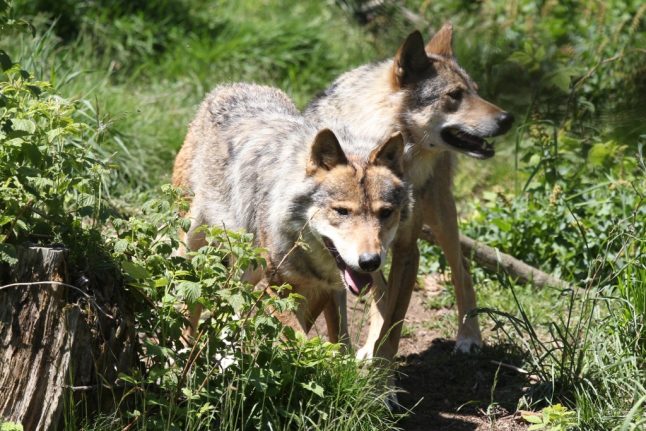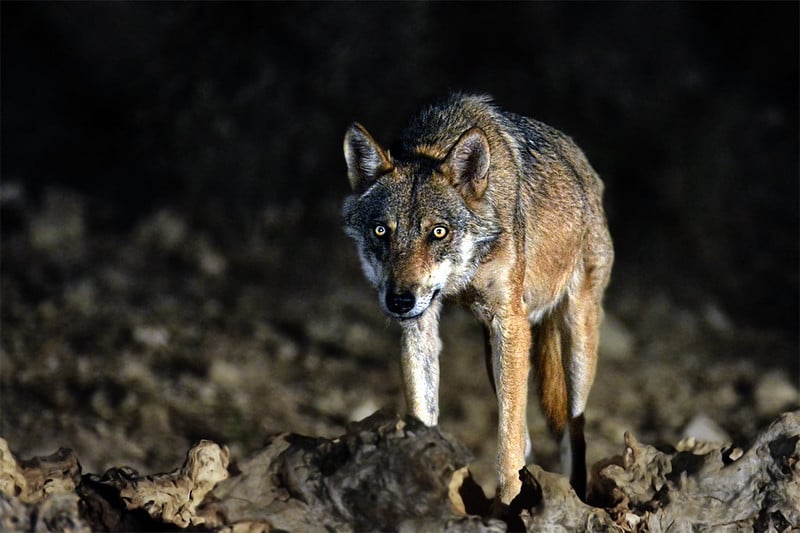The ONCFS hunting and wildlife agency said on-the-ground tracking and mathematical modelling had determined 479 to 578 adult wolves on French territory during this year's winter count, or an average of 530.
It was a 23 percent jump from the average of 430 adults counted the previous winter.
VIDEO: French farmers versus wolves and bears in a battle for livelihood

Farmers near Toulouse protest over wolf and bear hunting. Photo: AFP
Wolves were hunted to extinction in France by the 1930s, but gradually started reappearing in the 1990s as populations spread across the Alps from Italy.
They are now found mainly in the Alps and other mountainous regions of the southeast, where most of the recent pack increases were found, as well as in pockets of central France.
But wolves have also been detected recently in the Pyrenees mountains that separate France and Spain.
The population growth has infuriated French farmers who say the predators are decimating their flocks, despite a series of measures financed by the state to limit the damage and compensation owners for losses.
Last year 3,674 wolf attacks led to the deaths of some 12,500 animals, mainly sheep.
Under a “Wolf Plan” adopted in 2018, the “viability threshold” of 500 animals, the level at which the population is likely to avoid becoming at risk of extinction over a 100-year period, wasn't expected to be reached until 2023.
Projections of rapid growth had already prompted President Emmanuel Macron to announce in March that 17 to 19 percent of the population would be culled each year, up from 10 to 12 percent.
“We now consider that the wolf is no longer a species at risk of extinction, which is a good thing in terms of biodiversity,” Agriculture Minister Didier Guillaume said Wednesday.
“However in terms of the high levels of preying… we have to fully and strongly support our farmers. Their well-being is our priority,” he said.
The government's administrator for the Rhone department of southeast France said Friday it was lifting the 2019 cull limit to 53 animals – 38 have already been killed so far this year.



 Please whitelist us to continue reading.
Please whitelist us to continue reading.
Member comments